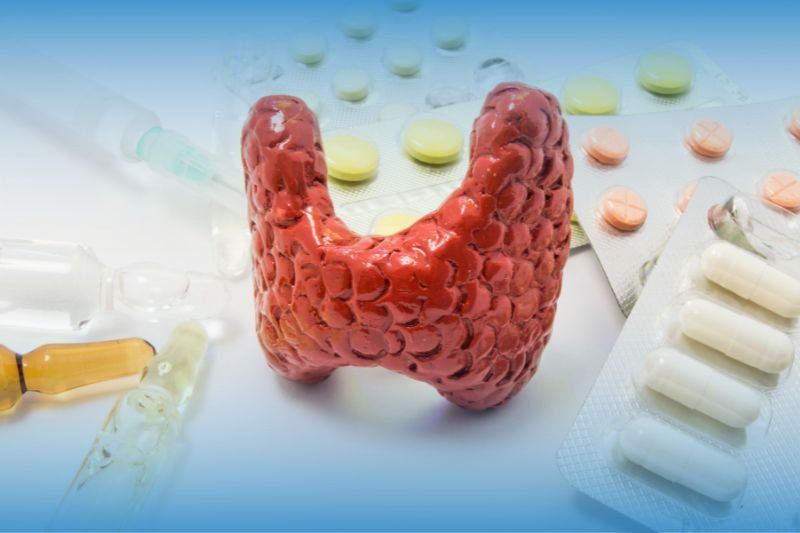
If you're one of the millions of Americans taking thyroid medication but still struggling with symptoms like fatigue, weight gain, and brain fog, you're not alone. While your blood tests might show that your thyroid hormone levels are "normal," there could be a missing piece to the puzzle. This often comes down to a crucial detail: how your body uses the medication you're taking.
Your thyroid gland naturally produces two main hormones: thyroxine (T4) and triiodothyronine (T3). Most commonly prescribed thyroid medications, such as Synthroid, Levoxyl, and Levothyroxine, contain only T4.
Think of T4 as the body's storage form of thyroid hormone. It's not the most active hormone itself. Instead, your body must convert T4 into the much stronger and more active hormone, T3. This conversion happens primarily in your liver and kidneys with the help of a special enzyme called DIO2.
Here's where the problem lies for many people: a genetic variation in the DIO2 gene can affect the function of this enzyme. This variation, or single-nucleotide polymorphism (SNP), is quite common, affecting about half of the population.
For people with this genetic trait, the conversion of T4 to T3 isn't very efficient. This means that even if they take a medication that provides plenty of T4, their body might not be making enough T3 to alleviate their symptoms. The result? They continue to experience the classic signs of a low-functioning thyroid, despite being on medication.
Research has shown that people with hypothyroidism who have this genetic variation often see significant improvement in their symptoms when they are given T3 medication, or liothyronine, in addition to their T4. This approach directly addresses the conversion problem and ensures their body has an adequate supply of the active hormone it needs.
Unfortunately, many doctors don't routinely test for T3 levels or consider prescribing a combination of T4 and T3 medication.
If you are on thyroid medication but still have symptoms of hypothyroidism, you should ask your doctor to have your blood T3 levels measured. Based on those results, you can have a conversation about whether a T3 medication might be a beneficial addition to your treatment plan. Another option is to supply the body with nutrients that help with this important conversion. A good example is our Thyroid Wellness product. Taking this step could be the missing connection to finally feeling better.
Reference
Penna, G. C., Salas-Lucia, F., Ribeiro, M. O., & Bianco, A. C. (2023). Gene polymorphisms and thyroid hormone signaling: Implication for the treatment of hypothyroidism. Endocrine, 84(2), 309–319. https://doi.org/10.1007/s12020-023-03528-y